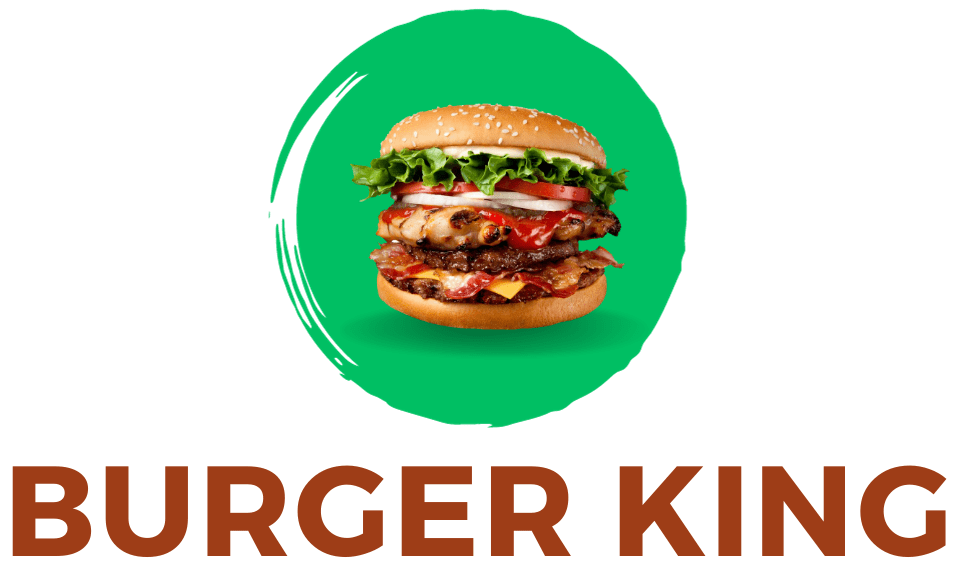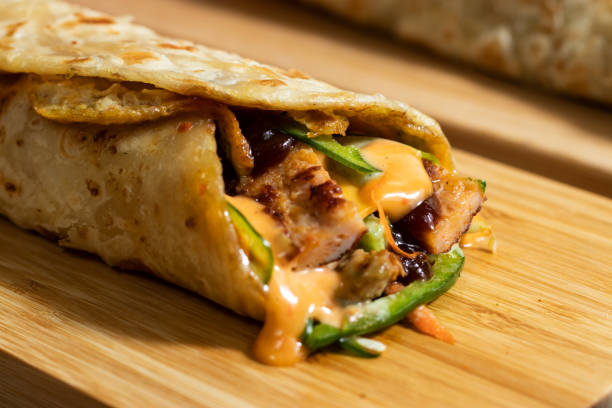Does Burger King Buns Contain Pork?
With the development of food preferences, constraints, and concerns, food consumers are increasingly sensitive to what’s actually in their foods. For those who avoid pork for religious, ethical, or medical reasons, knowing what ingredients are used in everyday foods like fast food is crucial. One commonly asked question from vegans and vegetarians is Does Burger King buns contain pork in their buns This article investigates the question of researching all that goes into their Buns and finding out why those people with pork-related health concerns should take it more seriously.

Importance of Understanding Ingredients
Before we ask whether Burger King buns contain pork, we should surely realize why the question is significant. Religions and groups that avoid pork for various reasons include
Religions: Many religious groups, such as Muslims (who follow halal guidelines) and Jews (who observe kosher laws), prohibit the consumption of pork. Even a trace of pork in food can make things hazardous for people following these dietary rules.
Health reasons: Some people avoid pork because they have allergies, specific health problems, or certain lifestyle choices, such as vegetarianism and veganism.
Ethical: In recent years, the ethical question of factory farming and animal welfare has been encouraging people to avoid pork itself and sometimes any ingredients coming from animals.
For these people, even tiny ingredients in Burger King buns containing pork such as gelatin or certain fats, can render the product unfit for consumption. Knowing whether Burger King’s buns or other ingredients have pork in them enables customers to make better ordering decisions based on real information.
Burger King Buns: The Basics
Burger King buns contain pork are a crucial part of their hamburger offerings. When you have a Whopper, an old-fashioned Cheeseburger, or even an Impossible Whopper there, the bun just becomes another ingredient in this tasty sandwich. These buns are geared to appeal widely, and their ingredients are crucial in meeting dietetic preferences or restrictions.
Burger King buns contain pork Ingredients
Based on publicly available information about ingredients, Burger King buns contain pork standard buns (which make up most of their burgers and sandwiches) usually consist of the following major components:
Enriched Flour: This wheat-based ingredient is central to what constitutes the bun.
Water: Used to knead and produce the dough, it is also consumed in folk China.
Sugar: The addition of a little bit of sugar is for flavor and to assist the yeast in fermenting.
Yeast: Essential for leavening, this is the key ingredient that gives buns their light, airy texture. Soybean Oil: A source of fat used to give moisture and softness to the buns.
Salt: For flavor Preservatives Often used to keep buns fresh during transport and storage
These are the primary ingredients of Burger King buns contain pork everyday sandwich buns. If you’re concerned about pork, then the good news for you is that none of these ingredients are derived from pork. Do Burger King Buns Contain Any Pork Ingredients.
After studying the primary ingredients of Burger King buns
We have found no indication that the buns contain any Burger King menú or pork-derived ingredients. More specifically, there are no animal fats, pork-based gelatins, or other pork-related additives listed on the basic bun recipe. This conforms to Burger King’s goal of providing for a diverse clientele, including those who follow dietary restrictions such as halal, kosher, forbidden foods, vegetarians, or vegan dieters. Cross-Contamination Issues Burger King buns contain pork Buns
Although the ingredients in Burger King buns contain pork don’t include pork, the one thing to be mindful of is the possibility of cross-contamination.
Cross-contamination: could happen when foods containing no pork come into contact with surfaces, utensils, or equipment that have touched pork-containing foodstuffs before.
Cross-contamination: is a potential concern in fast food environments where multiple food items are prepared in close proximity.
For instance: If the bun itself does not contain pork, it might yet come into contact with surfaces used to prepare pork-based menu items such as sausage or bacon. It’s crucial to ask staff about cross-contamination prevention methods as a means off-supporting strict dietary regimens ahead of time prior entering fast food restaurants.
For example: fast-food chains like Burger King buns contain pork implement their own specific procedures to protect others who adhere to strict dietary norms from the cross-contact between different types of food. Halal and Kosher Considerations For those who follow halal or kosher dietary regulations, determining whether the Burger King buns contain pork and are suitable for consumption is more than simply looking at an ingredients chart. You also have to find out whether the food is made in compliance with religious laws.
| Aspect | Details |
| Do Burger King buns contain pork? | No, Burger King buns do not contain pork or pork-derived ingredients. |
| Main Ingredients | Enriched flour, water, yeast, sugar, soybean oil, salt. |
| Are they suitable for halal diets? | The buns do not contain pork, but Burger King is not certified halal. Cross-contamination may occur. |
| Are they suitable for kosher diets? | The buns do not contain pork, but Burger King is not kosher-certified, and cross-contamination is a concern. |
| Cross-contamination risk | Possible, as burgers are prepared in the same kitchen as pork products like bacon. |
| Alternative options | Some locations may offer gluten-free buns or lettuce wraps. |
| Vegetarian/Vegan suitability | Yes, the buns are generally suitable for vegetarians and vegans as they do not contain animal products. |
| Ingredient inquiries | Ingredient and allergen information can be requested on-site or found online. |
| Bun for Impossible Whopper | The bun used for the Impossible Whopper also does not contain pork. |
| Pork-derived ingredients to avoid | No lard or gelatin is present in the buns the fat used is plant-based. |
Halal Compliance For the Muslim
The word “halal” means food that is allowed to be eaten according to the religious laws of Islam. It’s not enough to avoid pork you also need to know exactly how food is made and processed under halal-based regulations. In one or two extreme cases where the burgers themselves don’t contain pork, Burger King buns contain pork does not typically market their restaurants or products as being completely halal-certified. This means that while the bun may be free from any pork-based ingredients, other menu items (such as sausage or bacon) are not halal and the kitchen does not adhere to halal-based procedures. However, certain Burger King outlets in predominantly Muslim countries or areas with long-established Muslim communities may offer halal-certified products. These outlets must go so far as to ensure that their menu items, including burgers, meet the requirements of halal law.
Compliance with Jewish dietary laws prohibits the consumption of pork
Similarly, kosher rules also determine how food is prepared, including the notion that meat and milk must be kept separate. While Burger King’s bread is not made with pork, Burger King buns contain pork and is not a “kosher” restaurant. This means that the food may not be prepared according to kosher regulations, and the presence of non-kosher meat or dairy products in the menu may eliminate the buns from being called kosher.
Alternatives To Standard Buns
For people with specific dietary restrictions who are still concerned about the possibility of cross-contamination or other ingredients in their food, Burger King buns contain pork offers a few alternatives.
Lettuce Wraps
In many Burger King buns contain pork stores, you can ask for your hamburger to be wrapped in lettuce rather than a bun. This option is popular among those who follow low-carbohydrate diets and people with celiac disease, but it’s also practical if you simply wish to avoid potential allergens or cross-contamination from the standard buns.
Gluten-Free Buns
Some Burger King outlets may offer gluten-free buns for those with sensitivities to gluten or celiac disease. These buns avoid ingredients like wheat and may have different preparation in order to avoid contamination from gluten. Although they are an option for those allergic to gluten, it is important to check out whether these buns contain any pork-derived ingredients as they usually do not.
Transparency And Ingredient Information
One of the best ways to assure that the food you eat matches your dietary needs is to check with the restaurant personally. Burger King, similar to several other major fast-food chains, provides information about its ingredients and allergens on its website. This transparency allows customers to look for any source of trouble, including components derived from pork.
With all of these special concerns in mind: it really is essential for you to talk to the staff at your local Burger King in order to get accurate information Right now, staff can tell you how your food is handled but more importantly for pork allergy concerns–whether any element of a certain product is coming into contact with pork products during preparation.
Burger King’s Commitment to Improved Transparency: As more people adopt different dietary restrictions or preferences, fast-food chains like Burger King have started offering increased transparency and more choice.
Burger King has even expanded its menu with plant-based options: such as the Impossible Whopper a patty made of soyabeans and other plants instead of beef. While the Impossible Whopper still uses the same standard bun that King regular ones do, it is a reflection of Burger King’s new drive to cater for vegetarians, vegans and the health conscious.
You might miss the classic beef whopper: but at least now you have the Impossible Whopper. It represents a compromise made in nudge angle marketing, given that no one seems to mind if you nudge them lightly but hard enough to jolt their attention. 100% of those at your table Coburg entertaining style stand stoutly against beef whoppers and then have to end up eating a tendered Chinese variety (Eastern Sea restaurants only serve pork Chinese Style as their main dish) because that’s what everyone else is having.
Burger King has not specifically addressed the issue of pork, although these initiatives demonstrate the company’s general willingness to take dietary preferences into account. With demand for halal and kosher items growing, it is possible that as time goes on, Burger King will also offer more products that are officially certified.
Conclusion
Once a review becomes available, it will appear here on the web page for those who need to find out. “People are responsive – ask questions and they should be happy to answer.” So, if you are avoiding pork there’s no reason to be worried about whether Burger King or its suppliers have been adding it. a) For those with health considerations and considering their diet, read the dorando list b) For people with religious reasons as well as ethical grounds behind this choice not taken from common usage c) Consumers should shop at places where producers are accountable after making such choices themselves.
FAQS
So exactly what is in hamburger buns?
No, Burger King’s buns contain no pork whatsoever. They are typically made from flour, water, yeast, sugar, vegetable,and salt.
Will Burger King buns contain pork be eaten by people who avoid pork for religious reasons?
Yes. This is a typical example of the Bun Myth it contains nothing distinctive about pork. However, strict halal or kosher practitioners should bear in mind that Burger King buns contain pork is not a licensed Halal or Kosher restaurant, and there may be some risk of cross-contamination in the kitchen.
Basically, cheese and pickles, following the hamburger of Burger King buns contain pork itself?
There is no animal by-product in Burger King’s buns, such as pork. Typically they are vegan-friendly, as they made from plant-based ingredients.
Is there a risk of pork cross-contamination with Burger King buns contain pork?
buns themselves do not contain pork, so cross-contamination could occur in a kitchen where bacon or other pork products are prepared. We recommend that you check with your local Burger King buns contain pork outlet as to their food preparation operations.
Are Burger King’s buns halal or kosher?
Burger King’s buns are not specifically certified halal or kosher, as Burger King buns contain pork take no such position. Please inquire when you reach a location offering halal options that is likely to be under strict supervision in order to satisfy dietary law.
who are really concerned about their diets?
Maybe at some Burger King buns contain pork outlets gluten-free buns or lettuce wraps are available. However it would be best to check whether they meet your requires and watch out for any risk of cross-contamination.
Are Burger King’s buns okay for vegetarians/vegans?
Yes, Burger King’s buns are typically safe for vegetarians and vegans because they contain no pork or other animal byproducts. However, Vegans should also ensure that they satisfy the requirements of a vegan burger and its other toppings.
Does Impossible Whopper contain pork buns?
The buns used in the Impossible Whopper, no more than those of a regular Burger King buns contain pork sandwich, do not comprise any pork or pork derivatives. They are composed from plants.
Can I ask Burger King buns contain pork for ingredient information on the spot?
Both online and in-store, Burger King buns contain pork Burger King makes ingredient and allergy information available. You may request information about an item’s ingredients, such as the amount of pork found in a bun.
Lard or gelatin in Burger King buns contain pork buns?
No, Burger King’s buns contain no pork fat,or lard,or gelatin. The fat used in these buns comes from plants, typically soybean oil.




